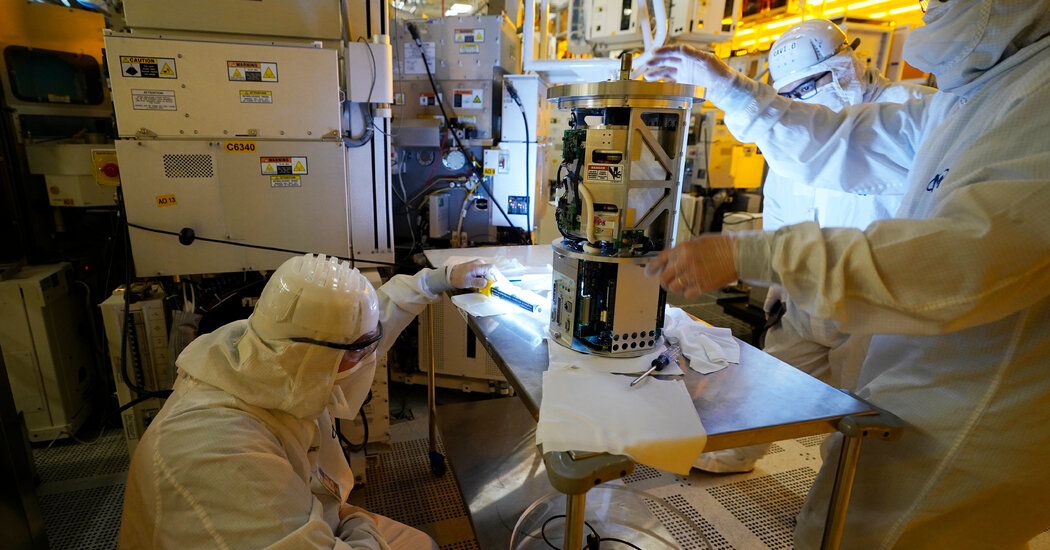Chip Makers, Once in High Demand, Confront Sudden Challenges
[ad_1]
Supplies of some chips remain scarce, including older components needed by the auto industry, said Frank Cavallaro, chief executive of A2 Global Electronics and Solutions, a chip distributor. But the situation is different with processors and memory chips, which perform calculations and store data in personal computers, tablets, smartphones and other devices.
Those products were hot commodities as consumers worked from home during the coronavirus pandemic. But that boom has now cooled, with PC sales dropping 15 percent in the third quarter, according to estimates by International Data Corporation. The research firm also predicted that smartphone sales would fall 6.5 percent this year. Demand has been tempered by inflation as well as a lengthy Covid lockdown in China, analysts said.
At the same time, inventories of chips piled up. Computer makers spooked by the shortage bought more components than they ended up needing, said Dan Hutcheson, a market researcher at the firm TechInsights. When customer demand dried up, they started slashing orders.
“You see multiple issues converging,” said Syed Alam, who leads Accenture’s global high tech consulting practice, including semiconductors.
Handel Jones, chief executive at International Business Strategies, predicts that total sales for the chip industry will still grow 9.5 percent this year. But he expects revenue to decline 3.4 percent to $584.5 billion next year. Last year, he had predicted steady yearly growth for the chip industry from 2022 until 2030.
Warning signs included Intel’s second-quarter results, which it announced in July. The company posted a rare loss and a 22 percent drop in revenue, blaming its own missteps and customers who cut chip inventories.
“We were well into the quarter and we saw the market characteristics change quite suddenly,” Patrick Gelsinger, Intel’s chief executive, said in an earnings call.
